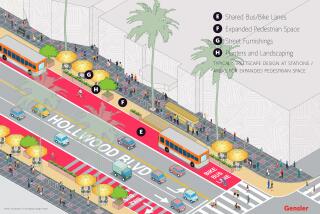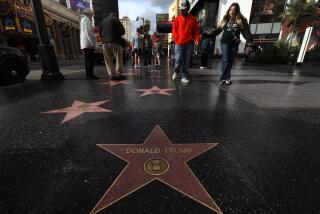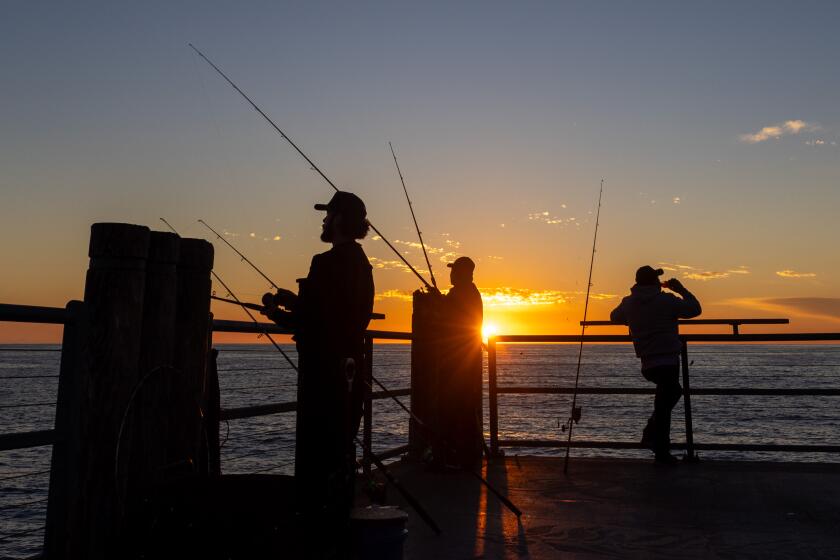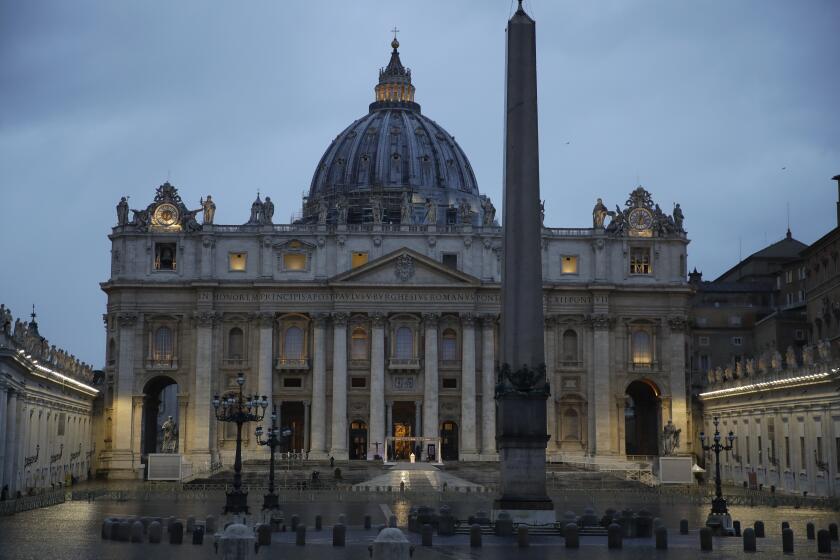Can George Clooney persuade Hollywood to boycott hotels over Brunei’s antigay laws?
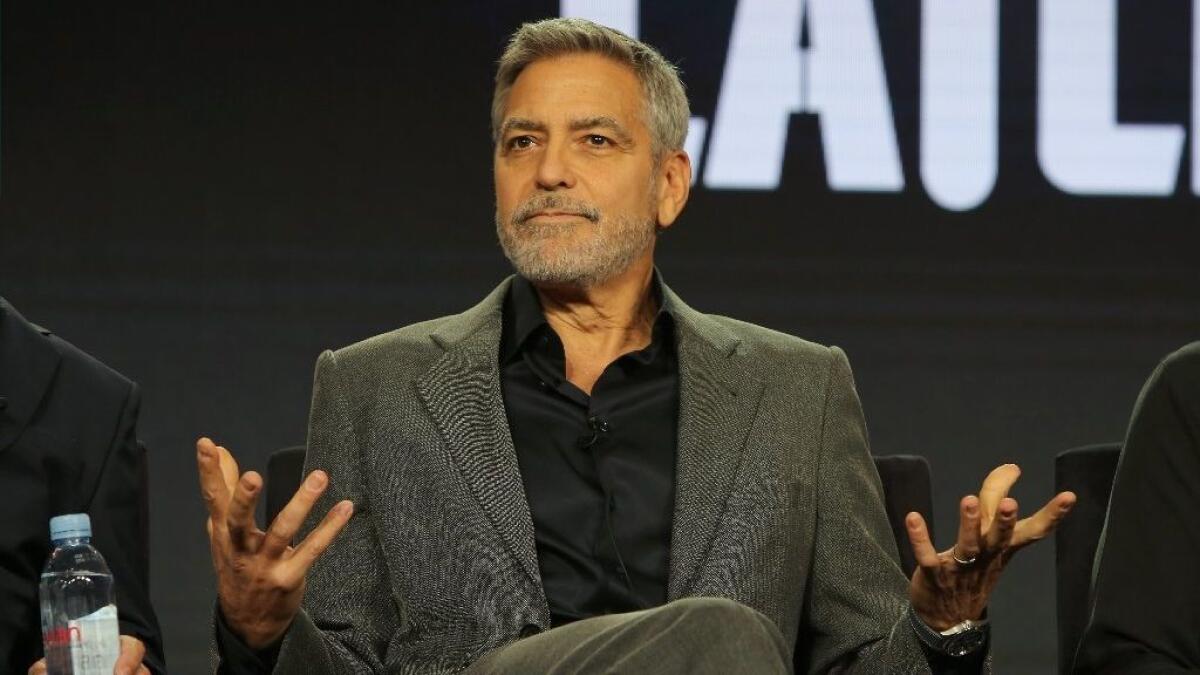
The Beverly Hills Hotel has long been a refuge where Hollywood could both hide and show its true self. Where actors could retreat from scandal, divorce, a botched plastic surgery.
Where Humphrey Bogart and Frank Sinatra — and many, many others — got elegantly trashed at the Polo Lounge. Where waiters catered to Howard Hughes’ idiosyncrasies by having his roast beef sandwiches delivered to a tree nook.
From Elizabeth Taylor celebrating six of her eight honeymoons there to Donald Trump holing up with Stormy Daniels in one of its famous curbside bungalows, the Pink Palace on Sunset Boulevard has remained at the heart of Hollywood since the beginning.
No one much noticed when the sultan of Brunei bought the hotel in 1996. Even fewer would have connected that meal at the Polo Lounge with the tiny, oil-rich autocracy halfway around the world.
But a recent announcement by the sultanate might turn that sip of Chairman’s Sour — named after Sinatra — a bit too sour.
Brunei says it will stone to death anyone charged with adultery or homosexuality, in accordance with sharia law, beginning Wednesday.
This brought out the side of Hollywood that didn’t need to hide behind bougainvillea-draped walls, the one it loved to show the world: fighting for a cause.
In a column for Deadline on Thursday, George Clooney called for a boycott of the hotel, Hotel Bel-Air and seven others in Europe owned by the sultan, who holds supreme power in Brunei.
“They’re nice hotels,” Clooney wrote. “The people who work there are kind and helpful and have no part in the ownership of these properties. But let’s be clear, every single time we stay at or take meetings at or dine at any of these nine hotels we are putting money directly into the pockets of men who choose to stone and whip to death their own citizens for being gay or accused of adultery.”
But the days when Hollywood celebrities could speak their political mind without blowback — even against patently deplorable human rights abuses — are long gone in America, perhaps even in liberal Hollywood itself.
The loudest critic of Clooney so far: Bill Maher, as vocal a liberal as any, but one not afraid to challenge liberal orthodoxy. On Friday, he ridiculed the action the actor was calling for.
“Brunei has passed a law that you will be stoned to death if you are gay or committed adultery, and here we come back with the call from Hollywood celebrities to boycott the Beverly Hills Hotel,” Maher told his panel of guests on his HBO show, “Real Time With Bill Maher,” taped at CBS Television City, three miles from the hotel.
“This really bothers me because it’s ... tokenism. What about Saudi Arabia? If you really want to get back at them, stop driving. Don’t use oil.”
“The idea the sultan of Brunei is going over receipts of the Polo Lounge: ‘Oh no, we only sold two soups today.’”
“People can smell it,” the conservative writer Andrew Sullivan chimed in. “It’s just virtue signaling. It’s just: ‘Look at me. I’m so … great.’”
Clooney has long shrugged away such criticism — in 2006, an episode of the TV show “South Park” famously had him emitting a deadly cloud of smog-like “smug” during his Oscar-acceptance speech, threatening a perfect storm of self-satisfaction as it collided with smug from hybrid car owners.
Along with other outspoken stars like Meryl Streep, Matt Damon, Brad Pitt and Angelina Jolie, Clooney holds to the view that he should use his high profile to advocate for disempowered people around the world. He has fought for gay rights, organized a telethon to help earthquake victims in Haiti and spent over a decade trying to stop genocide and famine in Sudan. The United Nations appointed him a “Messenger of Peace.”
These are noble causes to most of the traditional Hollywood guard.
Elton John praised Clooney on Sunday.
“Discrimination on the basis of sexuality is plain wrong and has no place in any society. That’s why I commend my friend, George Clooney, for taking a stand and calling out the anti-gay discrimination and bigotry now being enshrined in law in the nation of Brunei, a place where gay people are brutalized or worse,” John said in a statement.
This is all a bit of a rehash from 2014, when Brunei introduced the new penal code based on Islamic law, or sharia, that greatly expanded the scope of religious laws to cover not just family matters like marriage and divorce but also issues such as murder, rape and theft that had previously fallen under the jurisdiction of civilian courts. (The penalties that go into effect this week mark the full implementation of that penal code.)
Celebrities protested then and called for a boycott, and the city of Beverly Hills approved a resolution urging the sultan to sell the hotel. But no stonings occurred, and the issue faded quickly. In the global economy, it was hard to focus on a country with a population smaller than Long Beach’s while autocratic nations like Saudi Arabia — with similar sharia laws on the books — had deep corporate ties to all sorts of American companies.
This weekend, Sultan Hassanal Bolkiah, the ruler of the oil-rich kingdom of Brunei, defended the harsh anti-gay penalties. A statement issued Saturday from his office said that Brunei, “like all other independent countries, enforces its own rule of laws.”
The purpose of sharia law is “criminalizing and deterring acts that are against the teachings of Islam,” the statement said, adding that it “also aims to educate, respect and protect the legitimate rights of all individuals, society or nationality of any faiths and race.”
The death penalty remains in force, but Brunei hasn’t carried out an execution in decades.
Bolkiah isn’t likely to be swayed by boycotts of his hotels, analysts said. One of the world’s last remaining absolute monarchs — he also serves as prime minister and handles defense, finance and foreign affairs — the 72-year-old enjoys near-total allegiance from his approximately half a million mostly Muslim subjects and a fortune estimated at $20 billion.
A tropical nation roughly half the size of Los Angeles County, Brunei is wedged between two Malaysian states on the Southeast Asian island of Borneo. The former British colony got rich exporting oil and gas starting nearly a century ago, and its royal family invested much of the proceeds overseas, including in iconic hotels.
The income has allowed Bolkiah to provide a high standard of living for his people, including free education and healthcare, minimal taxes, and government jobs and pensions for almost everyone.
“There is a social contract that exists between the kingdom and the people, and that’s sacrosanct,” said Mustafa Izzuddin, a fellow at the ISEAS-Yusof Ishak Institute, a think tank in Singapore.
“The hotels and overseas properties, all these profits go into the kingdom’s coffers. The social contract relies heavily on the sultan providing for his people.”
It also relies on Bruneians looking the other way at the royal family’s profligate spending — they are said to own thousands of luxury cars, a fleet of jets and a golf course designed by Jack Nicklaus — and reports that the sultan’s brother, Prince Jefri, flew in women from around the world for alcohol-fueled “sex parties” in the nominally dry kingdom.
But with estimates suggesting that Brunei’s oil and gas reserves could run out in about 20 years, Bolkiah has been trying to diversify the economy and begun courting investment from China.
Some see the sharia law push as an attempt to quiet dissent while shoring up the support of a largely conservative citizenry.
“The people of Brunei are not backwards,” Mustafa said. “They are well educated, they have access to the internet, they are quite well traveled, but they are conservative in their Islamic outlook. They would see these boycotts [by Clooney and others] as tantamount to Islamophobia.
“If you polled right now, Clooney wouldn’t be very popular in Brunei. They might boycott his movies.”
Clooney acknowledged that a boycott was mostly symbolic.
“Brunei is a Monarchy and certainly any boycott would have little effect on changing these laws,” he wrote in Deadline. “But are we really going to help pay for these human rights violations? Are we really going to help fund the murder of innocent citizens? I’ve learned over years of dealing with murderous regimes that you can’t shame them. But you can shame the banks, the financiers and the institutions that do business with them and choose to look the other way.”
There were no protesters seen outside the Beverly Hills Hotel on Sunday morning. Several visitors seemed unaware of the call for a boycott.
Brad Schaffer stopped by the hotel Sunday morning to have a Danish. Knowing about Brunei’s forthcoming law, he said he wouldn’t stay there even if he could afford it.
Tom Piccirillo, an Uber driver who often makes stops at the Beverly Hills Hotel, said he wouldn’t support a boycott while human rights abuses persist in countries like Saudi Arabia that are bigger trading partners with the U.S.
Piccirillo said Clooney’s call for a boycott is “very cursory and I just think it’s ineffective” and could hurt front-line employees of the hotels.
“Sharia law is their deal, and I don’t agree with it for sure. But I think we can do other things. I support the staff. I wouldn’t boycott them because they are nice people.”
Mozingo and Poston reported from Los Angeles. Bengali reported from Singapore.
More to Read
Start your day right
Sign up for Essential California for news, features and recommendations from the L.A. Times and beyond in your inbox six days a week.
You may occasionally receive promotional content from the Los Angeles Times.

